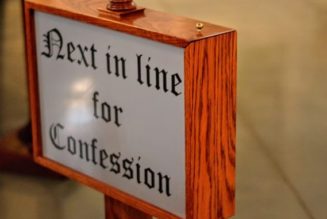
There is a somewhat obscure Bible passage that has been bothering me lately. Whenever that happens, I try to go back to it again and again, until I can discern what God wants to say to me through it. After talking to my spiritual director and praying about it more, I have some glimpses into what God is saying.
Here is the passage, with what has been bothering me highlighted:
“Paul and his companions traveled throughout the region of Phrygia and Galatia, having been kept by the Holy Spirit from preaching the word in the province of Asia. When they came to the border of Mysia, they tried to enter Bithynia, but the Spirit of Jesus would not allow them to. So they passed by Mysia and went down to Troas.” -Acts 16: 6-8
Here we see that Paul is on a journey to spread the Gospel to those who do not know about Jesus and haven’t had an opportunity to respond in faith or be baptized. Paul wants to go into parts of Asia, but for some reason he is compelled not to. The reason he doesn’t go to Asia is part of what is bothering me, but the thing which bothers me more is that he is giving the Holy Spirit the credit (or blame?) for keeping him from going to Asia.
- Why didn’t he go?
- Was it some outside force which prevented him?
- Did he get a warning of danger if he went?
- Were the authorities in the region hostile to Paul?
- Why should he not go to Asia and spread the Gospel there, because he clearly wanted to?
- No matter the reason, why is the Holy Spirit to blame (or get credit)?
These and many other questions have stumped me. I studied many Biblical commentaries and more for answers. There really are none, because the text doesn’t tell us why…or does it?
God clearly tells Paul “no” you can’t go to Asia. But, the story doesn’t end there, it goes on to say:
“During the night Paul had a vision of a man of Macedonia standing and begging him, “Come over to Macedonia and help us.” After Paul had seen the vision, we got ready at once to leave for Macedonia, concluding that God had called us to preach the gospel to them.” -Acts 16: 9-10
When God says no to one thing he is saying yes to another, even if that yes isn’t clear yet. In this case, the purpose of a no for going to Asia, was a yes for going to Europe! God had his own plan and it was better than Paul’s plan. Paul’s openness to the plan of God meant that the seeds of the Gospel could be sown in Europe and thus change the world. This changed world started with Lydia, the first convert of Europe. One changed life signals to the world that grace is coming. Grace that is powerful enough to transform all.
In this instance, God’s no to Asia turns into a yes. This yes has a name and it is Lydia.
What about today? God seems to be saying no a lot.
- No to visiting friends and family.
- No to travel.
- No to work.
- No to economic security.
- No to our future plans.
In a another way, he is saying no to the Church:
- No to going to the Sacraments.
- No to maintaining the current path forward.
- No to the way we have done things.
- No to leaning on our own plans.
- No to enough income to support our institutions.
- Etc.
Since this is the current state of affairs, then what is God going to say yes to? This is the question we need to focus on. If Paul had continued on into Asia, then what would that have meant to the Church? Could God have still accomplished his plans without Paul’s obedience? Of course. He is powerful enough to do so. Still, God mainly acts through the faithful yes from each of his disciples from moment to moment. He acts powerfully when you and I say “your will be done”.
So, what is our path forward? God certainly wants to say yes, but to what? I believe it is a new path, with innovative new ways of operating. I think God wants parishes and dioceses to start to rethink everything. Some of those things include:
- What we spend our money on.
- How we are organized to be on mission.
- How we train and equip missionary disciples to reach a lost world.
- What we have to let go of, in order to do what Jesus wants us to do.
- The structure, purpose, and use of parish staff and organizations.
- Realizing ministry in a parish is meant to equip and send out missionaries, not keep them huddled together in groups of like-minded people.
- Why the parish exists. The Church has always taught it is for the service of fulfilling the mission of Jesus (to make disciples) within a particular area. Yet we operate as if our purpose is to maintain what we have achieved already.
Remember this – a good idea is not always a God idea! That parish program, new organization, training, etc may be a good idea…but does God want it for you? Furthermore, a question we ought to ask when things don’t go our way is – what is God trying to teach us through this? Our parish and diocesan ways of operating are not reaching the world. We are losing more Catholics than we are gaining. We need to admit that this is failure and we can’t continue on the same path! So, what is God teaching us, esp. in this particular moment of isolation and pandemic? Each parish and diocese must answer this themselves.
If God is going to lead us down a new path, then we must start with humility. The kind of humility that allows God to lead us wherever he wants, no matter the cost. The kind of humility that might cost us everything in this life, in order to give us everything in the next.
A final thought. Imagine if even 25% of the Catholics who currently go to Mass regularly were equipped to go on mission, what would happen (we are now at about 1 or 2%? We would change the communities we live in. We would transform our culture. We are talking millions and millions of more Catholics who evangelize.
That should be our goal, to get others to heaven with us. Everything else is secondary. Including the current no.









